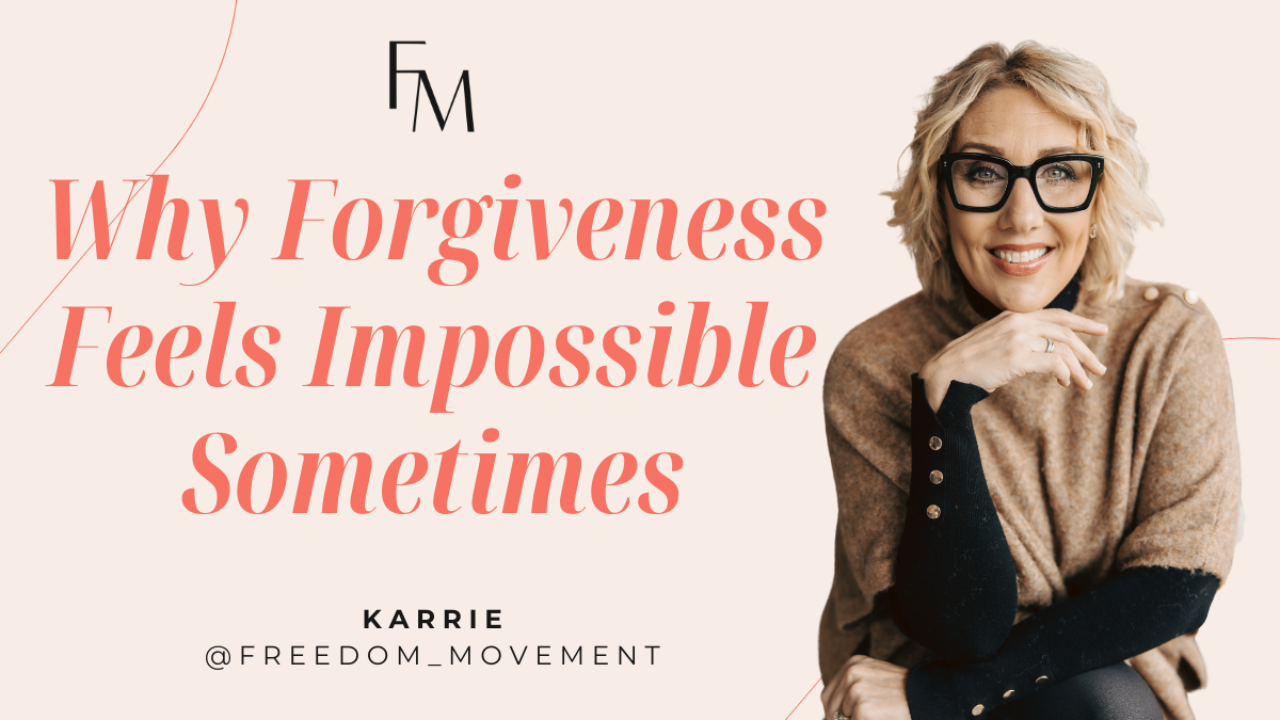|
During a recent training, a client asked a question that I believe many of us have wrestled with at some point:
"Why can't I forgive? I've spent the last three years in therapy and prayer, really trying to forgive. I don't understand why I can't release what's still holding on."
Maybe you've asked yourself a similar question.
Here’s the heart of my response:
We are often invited—or even pressured—to forgive before we’ve actually grieved what has happened to us. We're told to forgive before we even have the language to name the harm that was done.
Whether the harm was big or small, minimized by others or not, it had a real, visceral impact on you—on your story, your body, and your heart.
When you’re urged to “forgive and forget” it’s typically an intellectual exercise rather than a movement of the heart.
But forgiveness isn't meant to be forced through head knowledge alone. It must be birthed through grief.
The four-year-old version of you, the eight-year-old, the seventeen-year-old, the twenty-seven-year-old—they all have stories that need to be told.
Not fixed.
Not rushed.
Not explained away.
But truly grieved.
This is why I love the story of Peter. After his betrayal of Jesus, Scripture says, “And Peter was grieved.”
The grief was not dismissed. It was tended to.
It was honored.
And only after that tending, after that deep acknowledgment of pain, could restoration and real forgiveness take root.
Many of us have processed our pain—we’ve talked about it, thought about it, tried to make sense of it. But processing is not the same as grieving.
Grieving requires us to slow down, to enter the sadness, the anger, the confusion–and to allow God to meet us there.
When we skip this essential step, forgiveness becomes a man-made effort to soothe something that hasn’t yet been fully felt. It turns into striving.
But when we enter grief fully—naming the harm, feeling the loss, letting our hearts truly break where they need to—forgiveness becomes the natural outcome. It flows from a heart that has been seen, held, and healed, not forced.
If you find yourself struggling to forgive, it doesn’t mean you’re doing something wrong.
It might mean you’re actually being invited into something deeper: An honest, holy grief that will eventually make space for true forgiveness to rise up—effortlessly and freely.
I'm praying for you as you walk this tender road.
You are not alone.
|

